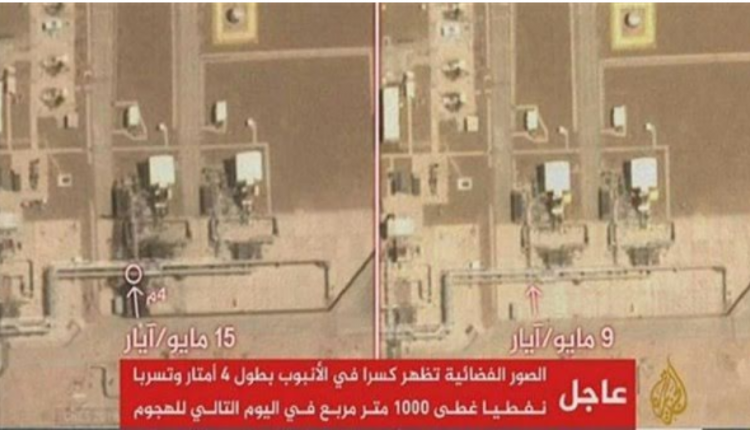Houthis, Yemeni Army Deny Saudi Allegations of Attempted Missile Attack Near Mecca
YemenExtra
SH.A.
 By Ahmed Abdulkareem
By Ahmed Abdulkareem
Saudi Arabia has claimed that its air defenses shot down two ballistic missiles over the city of Taif, just 65 kilometers east of Mecca, in the early hours of Monday morning. Saudi officials claim that another missile was intercepted over the Haddah in western Saudi Arabia.
Saudi newspaper Okaz reported that the missiles were intercepted as residents were breaking their day-long Ramadan fast. The paper claimed that the attempted attack was evidence that the Houthis had no regard for the safety and security of Muslim pilgrims visiting Mecca during the nights of Ramadan. The Houthis have unequivocally denied any involvement in the attacks.
Mohammed AbdulSalam, a spokesman for the Houthi political wing Ansar Allah, said in a statement, “We avoid targeting civilians as well as holy places, and this [accusation] is Saudi bankruptcy,” adding “Saudi Arabia fabricated the Houthi threat [to Meccia] in order to mobilize official and popular support.”
The Yemeni army, which is allied with the Houthis, said in a statement in the wake of Saudi accusation: “This isn’t the first time the Saudi regime has accused us of targeting Mecca. The objective of these accusations is to gain support and approval for their monstrous aggression.” An army spokesperson noted that the Houthis have never denied previous military maneuvers, saying “We do not hesitate to announce our military operations.”
An acknowledged drone attack on a non-civilian target
The Houthis did claim responsibility for last week’s attack on two Saudi oil pumping stations in the provinces of Dawadmi and Afif near the Saudi capital, Riyadh.
High-ranking officials in the Yemeni army, as well as the Houthi Political Council, told MintPress that the pumping station attack was not part of a regional effort to stir up tension between Iran and the United States, and was planned before those tensions came about.
The attack was carried out with domestically manufactured Houthi drones and reportedly caused a four-meter rupture in one of the station’s main oil pipes, in turn resulting in a 1000-square-meter leak in the area surrounding the facility.
Qatari television network Al Jazeera released satellite imagery showing the extent of damage to Saudi energy giant Aramco’s Pump Station 8 following the drone attack.
The Houthis have said that the attack on Saudi pumping stations was the start of an operation that will target 300 vital military and economic targets, including military headquarters and facilities inside Saudi Arabia and the United Arab Emirates, as well as Saudi-led Coalition military targets inside Yemen.
Long-distance drone strikes have served as a breakthrough for Yemen’s civilians and Houthi-allied military forces alike. They have served as an equalizer against one of the most well-funded and -equipped military forces in the region.
Yemen’s Houthi-allied military says the drone weapons are a necessary tool in the war and can serve as a means to finally reach peace — further pointing out that Yemen poses no threat to any country outside of the Saudi-led Coalition and has no aggressive intentions against its neighbors or U.S. interests in the region.
“We have no choice, we are being killed every day and our suffering has slid into oblivion in the rest of the world,” Amar Faress, a father who lost his entire family when Saudi airstrikes targeted his home in 2015, said of the Houthi strikes on Saudi Arabia. “Maybe the world will care about us if their interests are compromised.”

